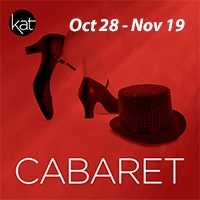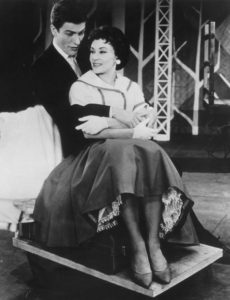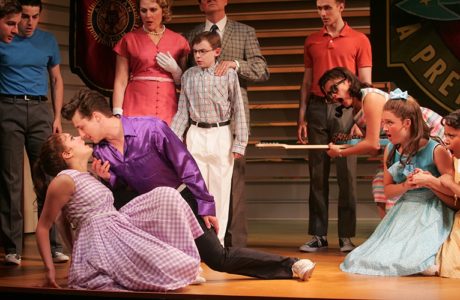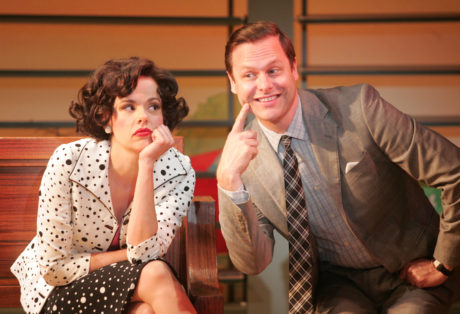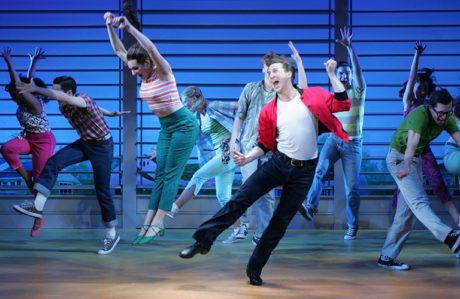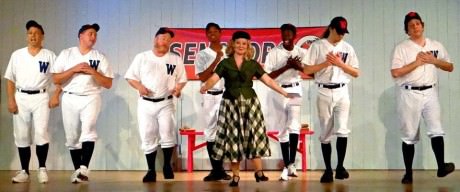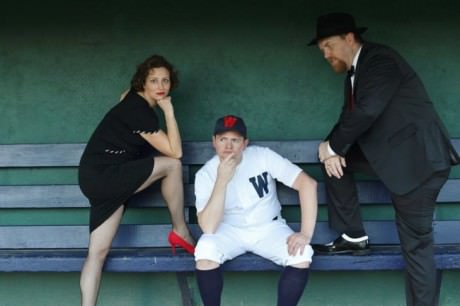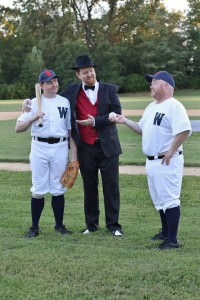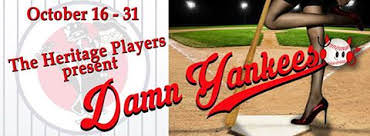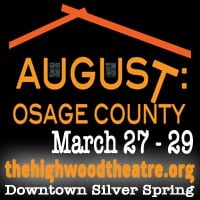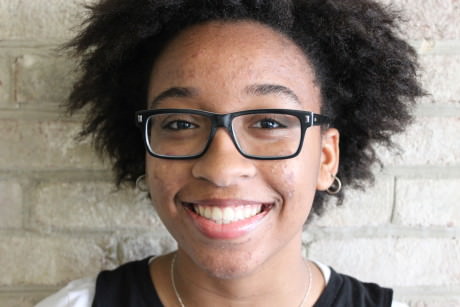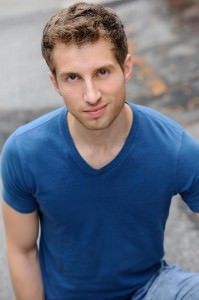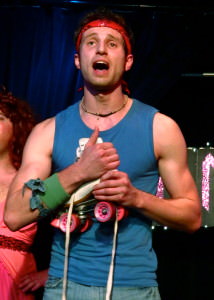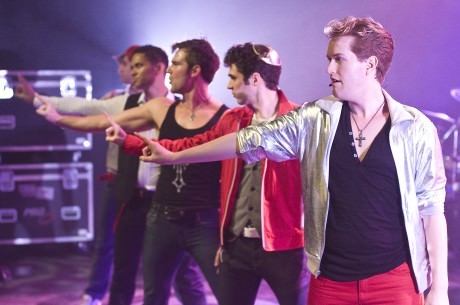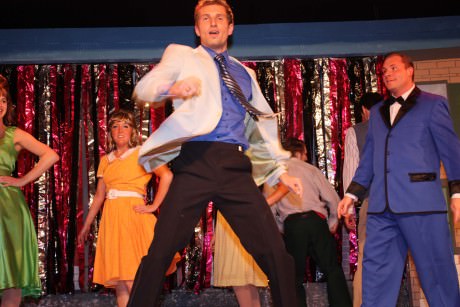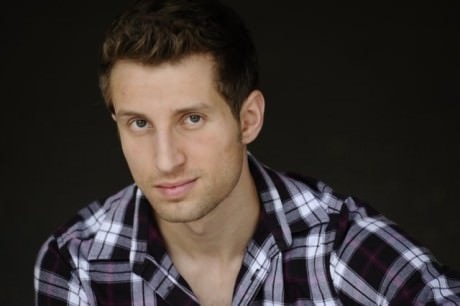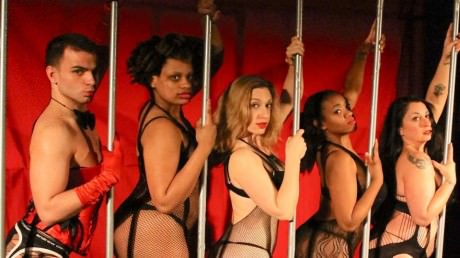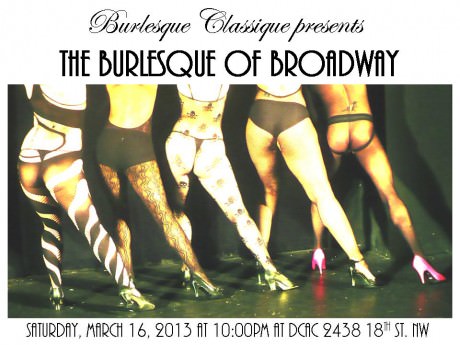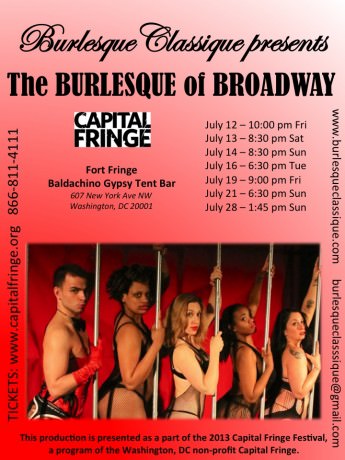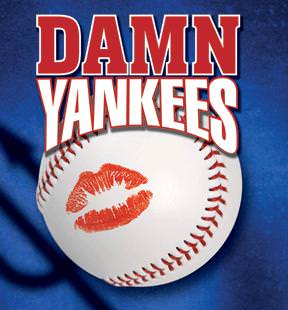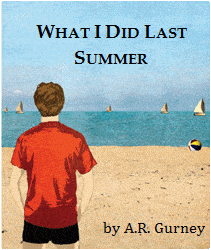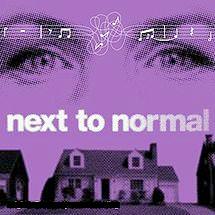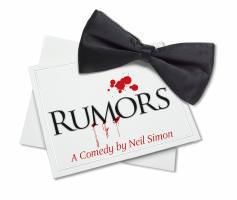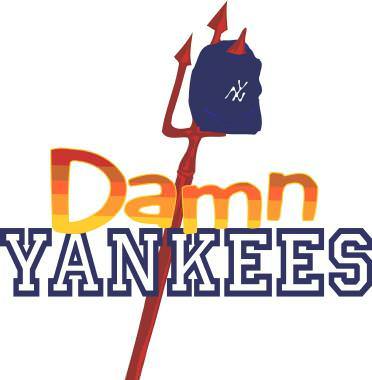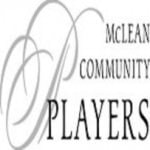In Part 4 of a series of interviews with the cast of Kensington Arts Theatre’s (KAT) Cabaret, meet Jonathan M. Rizzardi.
Joel: Where have local theatergoers seen you perform before on our local stages? What roles have you played?
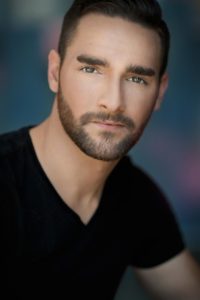
Jonathan: I’m actually really excited to say this is my DC metro area debut! I just moved into the area this past summer to pursue some artist and professional goals, and have been unbelievably thrilled by the experience so far. One of the best parts of that transition has been being able to be onstage with KAT in the rehearsal process for Cabaret. Prior to moving here, I was invested a lot of time focused on theatre education and arts advocacy work: directing high school theatre programs, developing arts integration curricula, and creating new programs for students in the Southern Maryland region centered on devised theatre, classic texts in performance, and modern theatre practices.
I’ve been lucky enough to play some really great musical theatre roles like Sky Masterson (Guys and Dolls), Schroeder (You’re a Good Man Charlie Brown), Joe Hardy (Damn Yankees), and The Cat in the Hat (Seussical), as well as some really fascinating parts in straight-play and more modern theatre shows like Orpheus (Polaroid Stories), Richard Greatham (Hay Fever), Barnette Lloyd (Crimes of the Heart), and Mr. Martin (The Bald Soprano). Perhaps most notably, for this show, I actually played the Emcee in Cabaret once before (when in college), so it has been a cool challenge to get to bring him to live again in a new way with KAT this fall.
Why did you want to be in KAT’s production of Cabaret?
When I first moved into the area, I knew that getting back onstage and reinvesting energy into performance (after a lot of time on the other side of the table as a director and working as an arts educator) was a really pivotal goal for me. It just so happened that I stumbled on information (from DC Metro Arts, comically enough) about KAT’s Cabaret auditions. I have always loved this show – and I think that bridges the challenges of being both a) one of the canonical musical theatre pieces that perpetually finds a way to reinvent itself and give more and more to audiences over the years, staying fresh and universal no matter what year it is performed and b) bringing together a really killer score with a strong book. I think a lot of musicals in recent years nail either the book or score, but fail to bring together both in the way that shows like Cabaret is able to do. So out of my love for the show, I figured “Why not dive in?” – and was lucky enough to get cast, and to be placed as this remarkable role, which I think is one of the best in musical theatre history. I haven’t been disappointed for a second.
Who do you play in this production, and how are you and your character alike and different?
I play the Master of Ceremonies (or “Emcee”) of the Kit Kat Club. The part, for those who are unfamiliar with the show, is two-sided, in that the Emcee is both the ringleader of sorts for the Kit Kat Klub – driving a lot of the club action, as well as performing some really great numbers while ‘on the stage’ at the club – and a oddly omnipotent, omnipresent force who appears in different scenes and moments of the show almost in the form of a narrator… who doesn’t always narrate. Everyone familiar with the show knows the part is radically tough, and was beautifully and iconically played first by Joel Grey (in the 1966 Original Broadway production and 1972 film), and Alan Cumming (in the deliciously naughty, reimagined Donmar Warehouse and Broadway productions in the 90s).
I think my version of the Emcee is deeply opportunistic. He doesn’t over think. He doesn’t plan. He takes what life gives him and runs with it (maybe a little too fast and far, but he definitely runs with it!) I also think he likes to impact people, both in the narrative of the story in moments you see and don’t see in the play, as well as blatantly instigating and trying to incite responses and change from the audience. In a lot of ways I envy that aspect of carelessness and whimsical risk that he has, and wish that I (someone who tries to be pretty open and ‘go for it’ oriented – but definitely comes up short with my Type A, must organize, must plan brain) could do the same. I think we do share the aspect of wanting to impact people around us, though, and the knowledge that what we do in life is only as meaningful as how those actions get to impact others. I think we are also alike in that we are both storytellers and like to try to captivate the people around us. I will let the audience’s imagination ponder our likeness in terms of his sexually forward presentation to the world, and even if he shares my desire to help and inspire (rather than hurt and degrade) people – but all of that is better found in performance than in print!
How did you prepare for your role, and what challenges did you face when preparing for your role?
Certain members of the production team and I have joked that the biggest challenge for me with this role has been trying to outrun and outlast some of the “ghosts” in my mind as I have prepared the Emcee. Everyone who knows this show immediately thinks of Grey or Cummings’ portrayal of the Emcee – and it is a tall task to try to live up to that. What is equally as daunting is knowing that I have played this role before and trying to reconceptualize his place in THIS production of the show, rather than what I may be comfortable with in terms of his motivations and desires, or even simple notes and rhythms, from having played the part before.
I think the best moments in the process for me have been the plateaus of me ‘letting go’ of trying to live up to any other version of the Emcee and really just breathing life into who he is in this show. I think my Emcee is naughtier than Grey’s, but a little more lighthearted than Cummings’; he is way more realistic and truthful than the last time I played him, and deeply connected to the reality of pre-WWII Germany in a way I hadn’t found as important as it is to his performance until this rehearsal process. More than anything else, my preparation in and out of the rehearsal room for the Emcee has been about making every little thing he does – from a bombastic introduction speech to a really powerful serious moment like “I Don’t Care Much” – to be motivationally truthful, and figuring out what that “truth” is for him.
How did Director Craig Pettinati help you with your challenges and what is the best advice he gave you about playing your role?
Craig has been really great to work with throughout the rehearsal process and his guidance (along with the guidance of Stuart, Matt, Cassie, Kelsey and the rest of the production team) has been really integral to the way I look at and have developed the Emcee. Craig is a lot more practical than me, too, which has been awesome for me as an actor. I have a tendency of getting lost in my head sometimes and a little too focused on the ‘world’ of the character rather than what the audience is actually seeing. It has been helpful to have someone like Craig as a director who can turn and give me a clear impression of ‘This may be what you are aiming for, but this is what we are seeing’ – and some simple, strong advice of how to orient my sometimes overwhelming surge of ideas of where to go next (think… wind and a sail, if that metaphor works for you).
The best advice Craig has given me for the Emcee wasn’t in a single comment, but really in the framework of our approach. He has helped push the direction of the Emcee (in my mind) to a more realistic place – often asking a lot of ‘Why’ questions for what I am thinking in moment, and not pushing trying to “be” any kind of Emcee but to really live in the skin of the character – which has been great. That with direction on the music end of Stuart and Matt pushing me to make a lot of unique and novel choices with tone and word attack, has really helped me to make this a version of the Emcee that I don’t think people have seen before.
How would you describe John Kander and Fred Ebb’s score? How would you describe a Kander and Ebb song?
Oh man! What a solid question. I would describe a Kander and Ebb song as “A Secret.” Kander and Ebb have this col way of giving you exactly what you expect and something SO far from what you expect at the same time. Take a song like “I Don’t Care Much” – which is one of my favorite to sing in the show. It’s a super simple little waltz: without complex rhythms, without difficult notes to hit (per se), without anything crazy or flashy. But hidden in there like a ‘secret’ is this really powerful emotionally-charged writing, and a song that feels a lot like a tight-rope to sing well. I love it. The same could be said for songs like “Maybe This Time” and “The Money Song” or “Willkommen” – all seem to do one thing, but by the end of the song you are hit with something a lot bigger than the sum of the parts.
I would call the whole score “Complete” or “Well-Rounded” in that you get songs that are fast and fun like “Two Ladies” and moments to really slow down and feel the moment like “What Would You Do?” It’s that sense of depth that lets audiences not know what’s coming next, and really sink into the show I feel.
Which song that you don’t sing is your favorite and why?
So tough to say. I really love a lot of the score, and think that the actors singing each song are doing such a beautiful job pulling the vitality and essence from each song (from the wildly talented Sarah Jane Bookter, to awe-inspiring Liz Weber). I love “Maybe This Time” and think that it has the same sense of emotional vulnerability for Sally that “I Don’t Care Much” has for the Emcee. It is raw, and moving, and is one of those songs that hits at the perfect time and reason in the show – both to elevate the plot and hit the audience with something really special about Sally. Sarah Jane also kills it – so audiences can look forward to that!
What do we learn about your character when you are singing your solos or duets?
I think we learn something different from every song about the Emcee. I would hope that audiences take away how well rounded and deep of a person he is, recognizing small slivers of ‘who he is’ that we get from each song. I think it is easy to perform the Emcee and just try to ‘WOW’ audiences with some of the high notes, or flashy characterizations, or cool voices and choices. But what is more productive in my mind is noting that every time we see him on stage he gives us just a little more about him – sometimes only in subtle ways – that can help fill in the holes that are unanswered in the text about, say, his relationship with Sally and the other members of the Kit Kat Klub, his feeling about the rise of the Nazi party and the oncoming way, as well as his own life and backstory. You get to see the playfulness in “Two Ladies” and “If You Could See Her” and I think that is sometimes all audiences want to take home with them. Yet, the profundity and shift of character in “The Money Song” or the “Finale” are just as important to who the Emcee is as a person.
Why and how is Cabaret so relevant to today’s audiences?
With a risk of going too political, I’ll try to streamline my thoughts here… I think that Cabaret, like any great piece of art, is universal. It speaks to audiences now in a way that is just as (if not more) important than it did in the 60s, and the 90s. I think that the show gets to pull in different audience members because if you came for a fun night and want to just enjoy the singing and dancing – you can take that with you. BUT! the important thematic and real-world questions that are being asked are also begging you to answer.
I think that the play asks really important questions about finding ourselves: how we need others and everyone around us to help map our journey through life (notable for Cliff and Sally). It also talked about the singular importance of love and humanity – about sharing what we have with those around us – that I think Herr Schultz’s part hits on so well (and that Chuck Dluhy performs with such zeal). Most importantly… I think the show gives us an important picture of how easy it is to distract yourself from a problem, and why it’s important (as Cliff says) to remember that “if you’re not againt all of this – you’re for it” which speaks to aspects of our own culture, such as urging support for the Black Lives Matter movement and positioning yourself in a historic election (that falls during our production run). I hope that audiences soak up what ever is vital for them from the show, but that some of the aspects of the importance of making choice and acting out against what is fundamentally wrong (and inspired by hate) seeps through for all of you.
This cast is filled with extremely talented singers, actors, dancers. What has impressed you most about your fellow cast members and their performances?
I have really loved working with this cast. We have such an eclectic group of actors and experiences – something that I think has really worked to benefit the show as a whole. The singular most important feature has been how impressed I am by everyone’s desire to fuse together to create really great work. I think it is sometimes rare to find (in life as a whole) a group that keeps their eyes on the ultimate goal of creating good work, and doesn’t get distracted by their own missions. Rather this cast has been great about using their goals to fuel the group’s objective: making a great show for all of you. In a more specific sense I have loved to see how everyone in the cast has full taken on the task of creating new, fresh, and novel performances for each character. Sarah Jane is a very different Sally than many people have seen before – younger and more eager to fit in (which I LOVE). Garrett, Chuck, and Matt (Ernst, Schultz, and Cliff) make choices with the text that I think pull out the significance of lines that sometimes are overlooked. Liz (Fraulein Schneider) is a tour-de-force of unique creative energy. The whole cast is so connected to the lives of their own characters – something that I think audiences will really feel when they come to the show!
What have you learned most about yourself -the actor- while going through this Cabaret experience?
That no small detail is unnoticed or unimportant in the development of your character. I often get hung up on really big thoughts and ideas in character development and (I say with a smile and nod) occasionally get a little more “method-y” than I should. But what I have found most rewarding with this part has been found in the small details. The way he changes one tiny word may not seem important, but it changes a lot about how we read the Emcee. Small actions and choices about tonality, or physical action, or even dialect choices have really changed my vision for the Emcee in a pretty cool way. So while I am always a “throw as much energy into preparing a part as a I can” kind of actor, I am learning more and more than sometimes the smallest choices can carry the most weight. I hope this is something that audiences read into the depth of my Emcee
What do you want audiences to take with them after seeing you perform in Cabaret?
I can say all of the things that I hope audiences take with them in terms of themes, or missions, or my view of the meaning of the show – but what I think is a lot more important with this pieces is what they HAVE with them during the run of the show. It’s easy with a lot of musicals to go song to song, moment to moment: to turn to your friends after a big number and say “Wasn’t that something!” or “I love his/her voice!” – but I hope we get the opposite during our run. I hope audiences feel engrossed and enticed; that they find themselves glued to the stage from beginning to end. We have put a lot of work into making this a world that can be believed in and that really exists, which I think is sometimes not a vital objective for some musical theatre casts. I hope audiences become a part of our story – not just passively sit and listen to it. Obviously, most importantly I hope everyone makes it out to KAT’s Cabaret!
LINKS:
Come to KAT’s ‘Cabaret’: Part 1: Meet Sarah Jane Bookter.
Come to KAT’s ‘Cabaret’: Part 2: Meet Chuck Dluhy.
Come to KAT’s ‘Cabaret’: Part 3: Meet Matt Trollinger.
Come to KAT’s ‘Cabaret’: Part 4: Meet Jonathan M. Rizzardi.

Cabaret plays from October 28-November 19, 2016, at Kensington Arts Theatre (KAT) performing at Kensington Town Hall – 3710 Mitchell Street, in Kensington, MD. For tickets, purchase them at the door, or online.
Learn More about Kander and Ebb’s work here:
